Intense Quarrel Brews As Eldest Takes Over Ownership Of New Cat She And Younger Sister Brought In
Owning a pet entails more than just declaring it yours. It involves meeting its demands on a daily basis.
It also includes providing sustenance, water, shelter, and love. It entails being present for the pet when it is joyful, unhappy, or ill.
Obtaining custody of a pet is simple, yet caring for it is difficult. Anyone can say they own a pet, but not everyone can show that they care about it.
True ownership entails prioritizing your pet's needs over your own. Do you feed it daily, and do you take it to the vet when it becomes ill?
Do you show it affection and attention? If you do, you truly own a pet; if not, then you are simply claiming ownership.
A fierce quarrel is brewing at the OP's house, and the new cat is at the center of it. This new kitten arrived, bringing a new wave of friction between OP and her 15-year-old sister.
The younger sibling was expected to look after the new cat, but she has yet to fulfill her responsibilities. OP has been picking up the slack, but she has now drawn a line in the sand.
As the cat requires responsibility, OP challenges her sister to step up or risk losing claim to the lovely new pet. But why is her sister so eager to get a pet without putting in the effort?
And what drives OP's determination to be the one to care for this cat? Find out as you read the full story below.
The headline

The story begins...
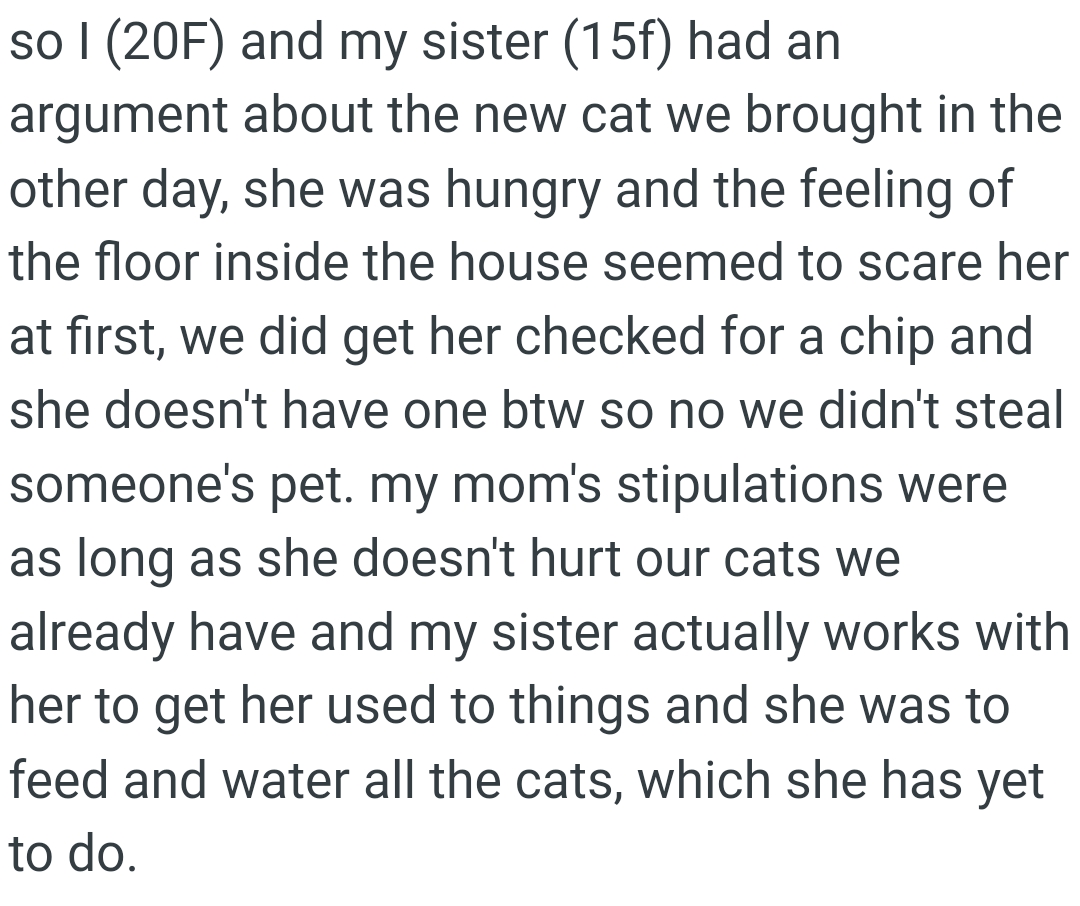
The Dynamics of Ownership and Control
Research from social psychology points out that conflicts over ownership often tap into deeper issues of control and identity.
Dr. Sarah Thompson from Harvard Medical School highlights that when individuals feel their autonomy is threatened, they may react defensively, perceiving actions by others as encroachments on their territory.
This can lead to heightened tension, particularly in relationships where boundaries are not clearly defined.
Being the one responsible for the cat
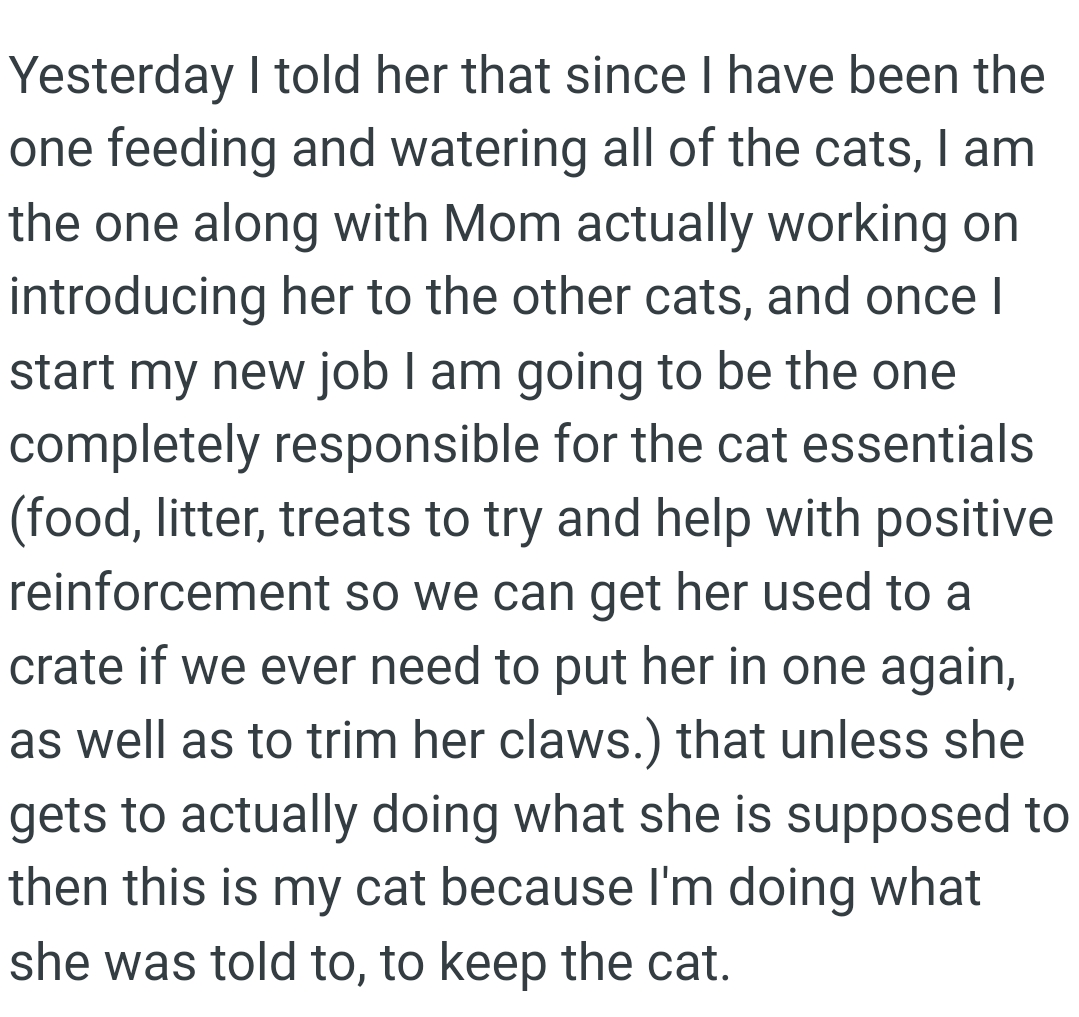
The concluding part
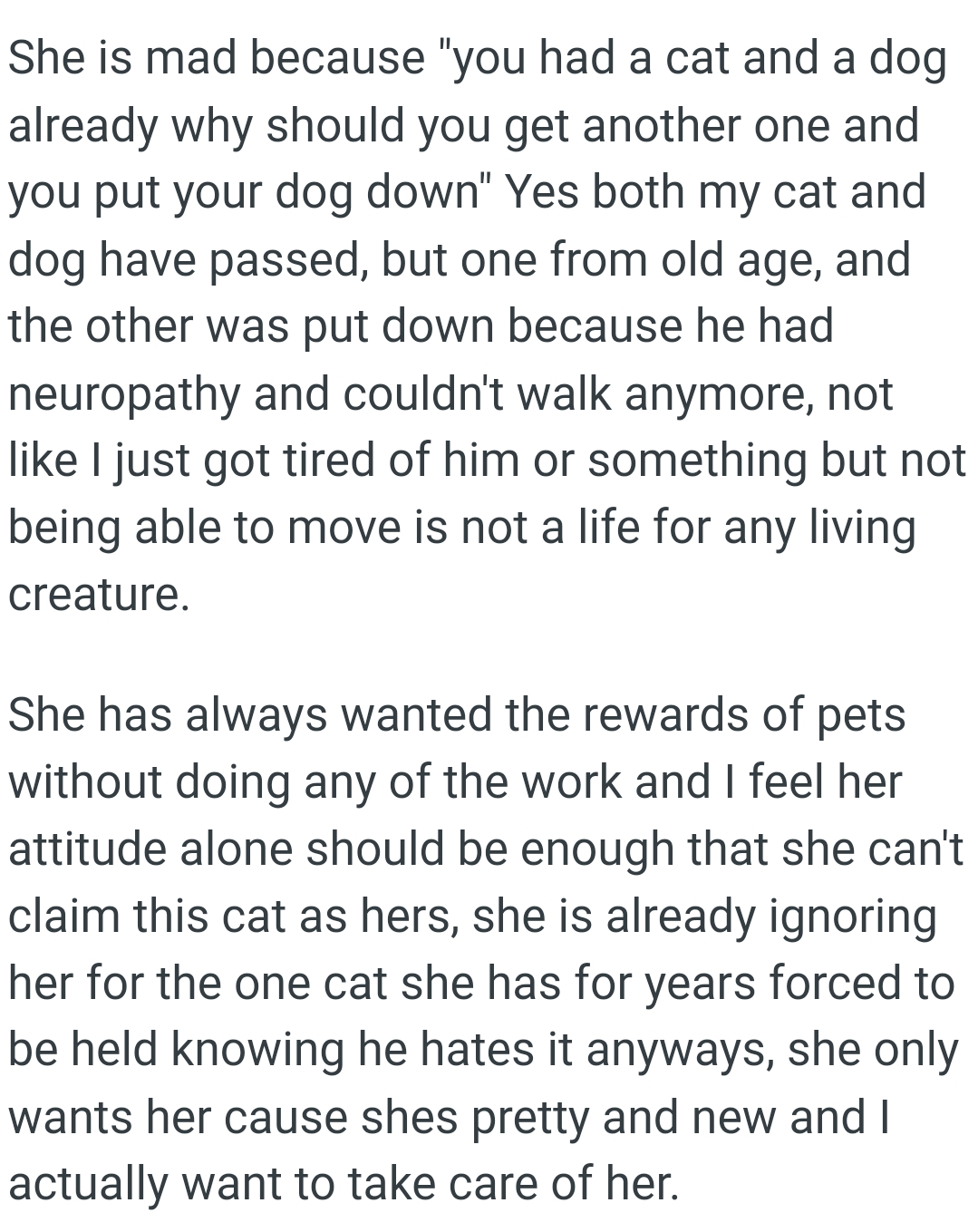
OP has offered the following explanation for why they think they might be the AH:
I yelled at her because she isn't doing what she was told, as she always does. This might make me the AH because she is still a child, and I shouldn’t have yelled, but I feel justified in saying that if she can't do the bare basics, then it's not her cat.
And the comments roll in...
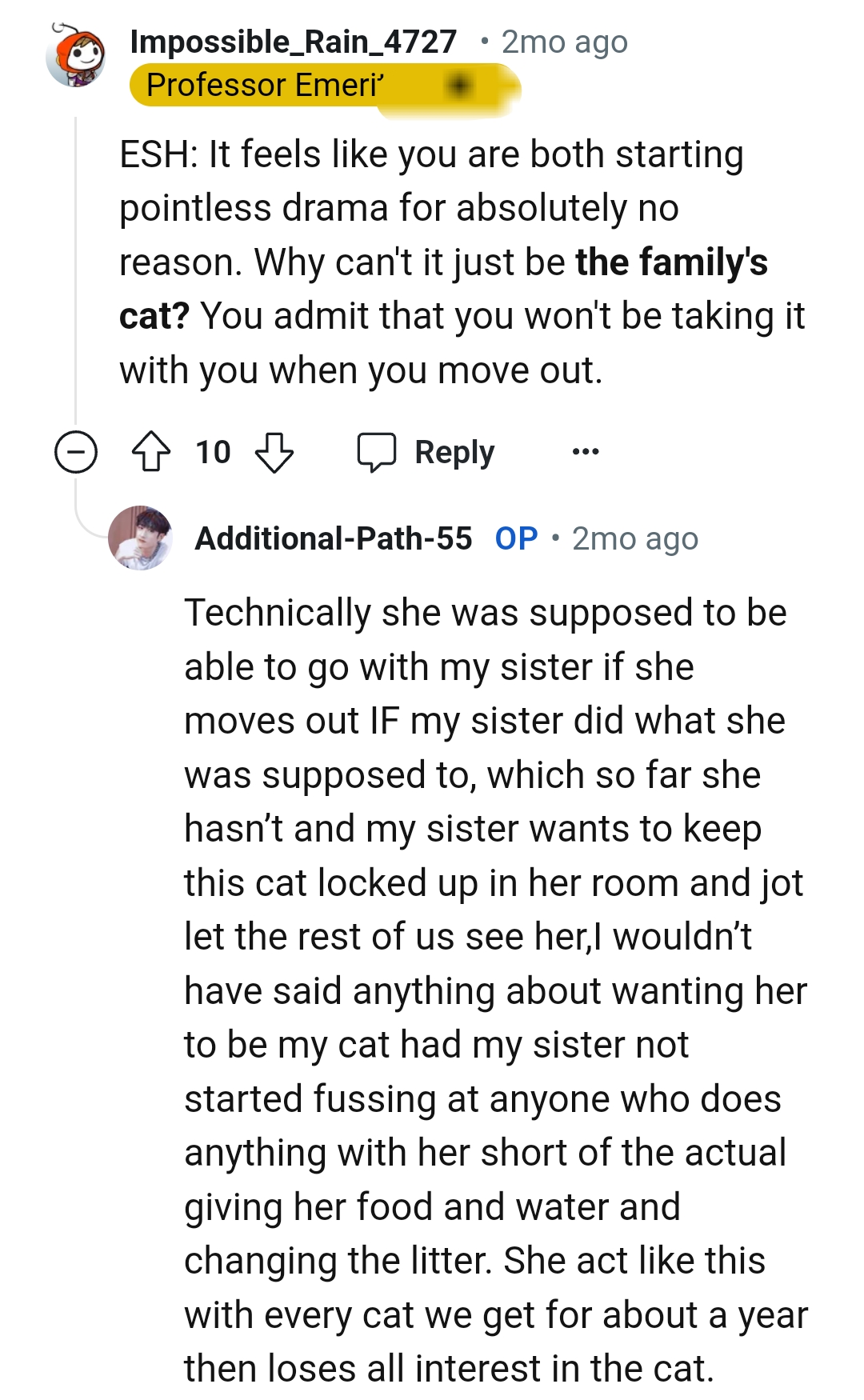
Wet and dry foods
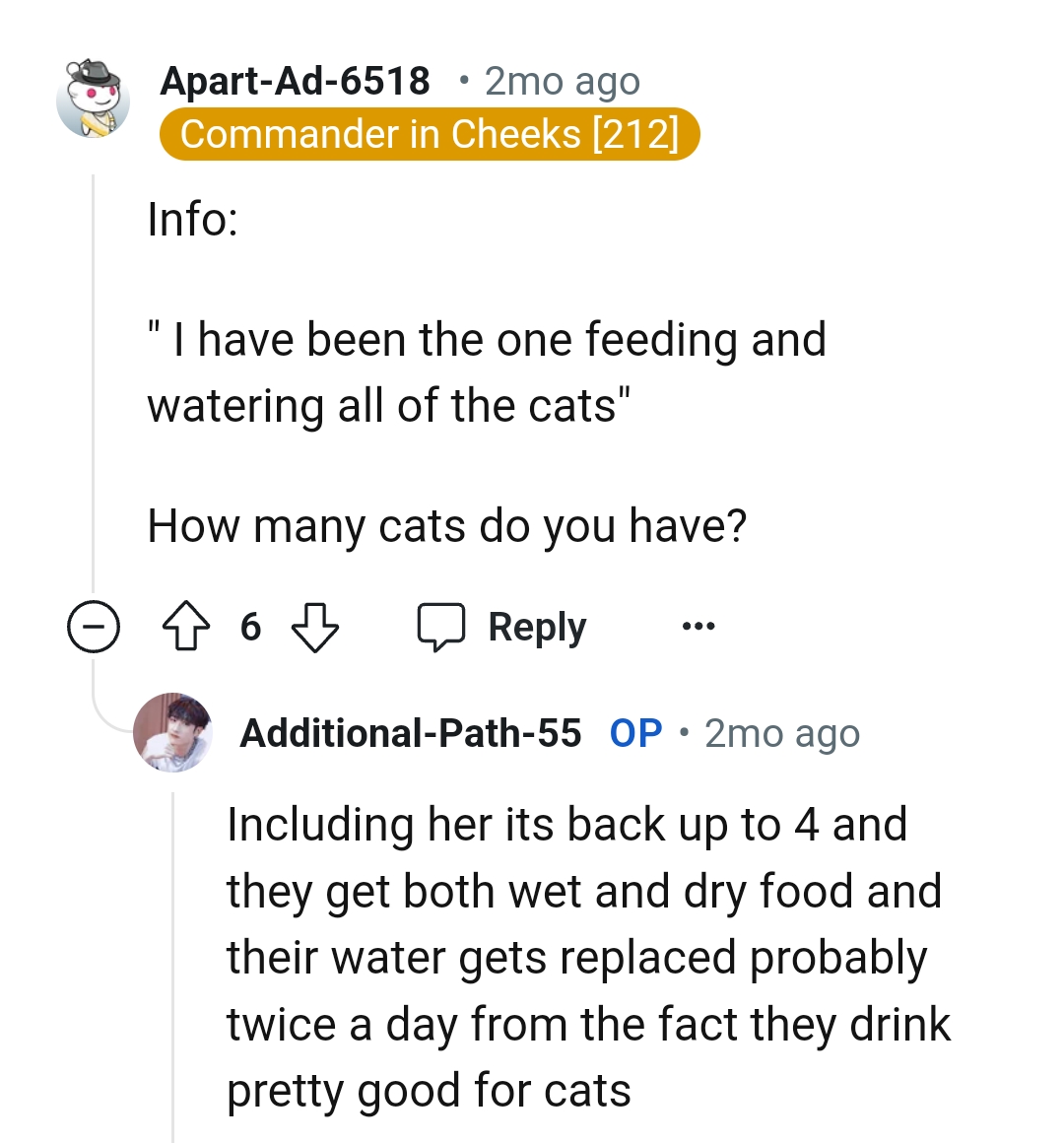
Sibling rivalry, particularly in shared responsibilities, can evoke feelings of resentment and competition.
Studies show that when one sibling feels taken advantage of, it can lead to an imbalance in the relationship, causing emotional distress.
Understanding these patterns can help individuals address the root causes of their conflicts rather than merely reacting to surface issues.
What does the OP mean?
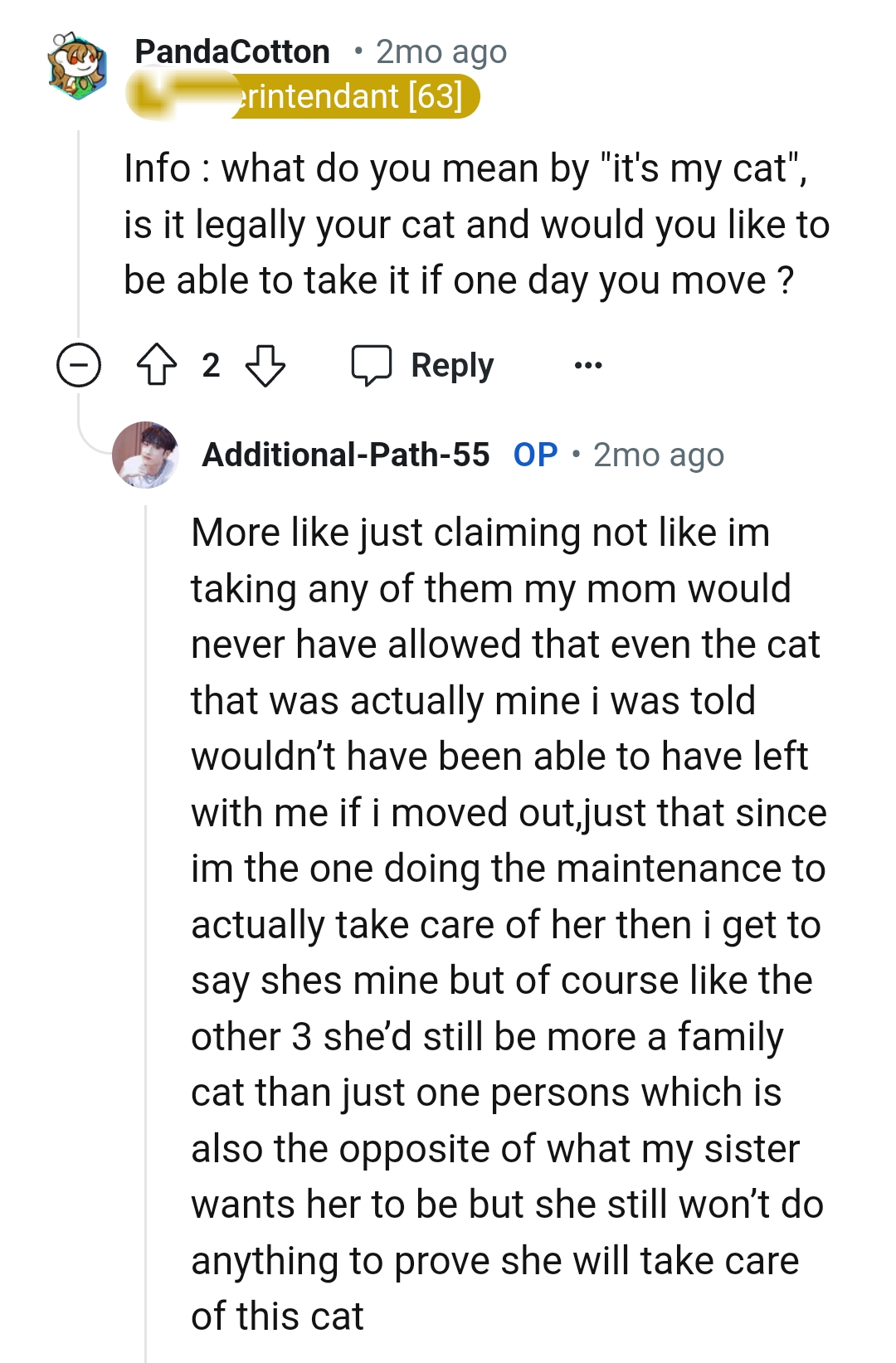
Having a chip
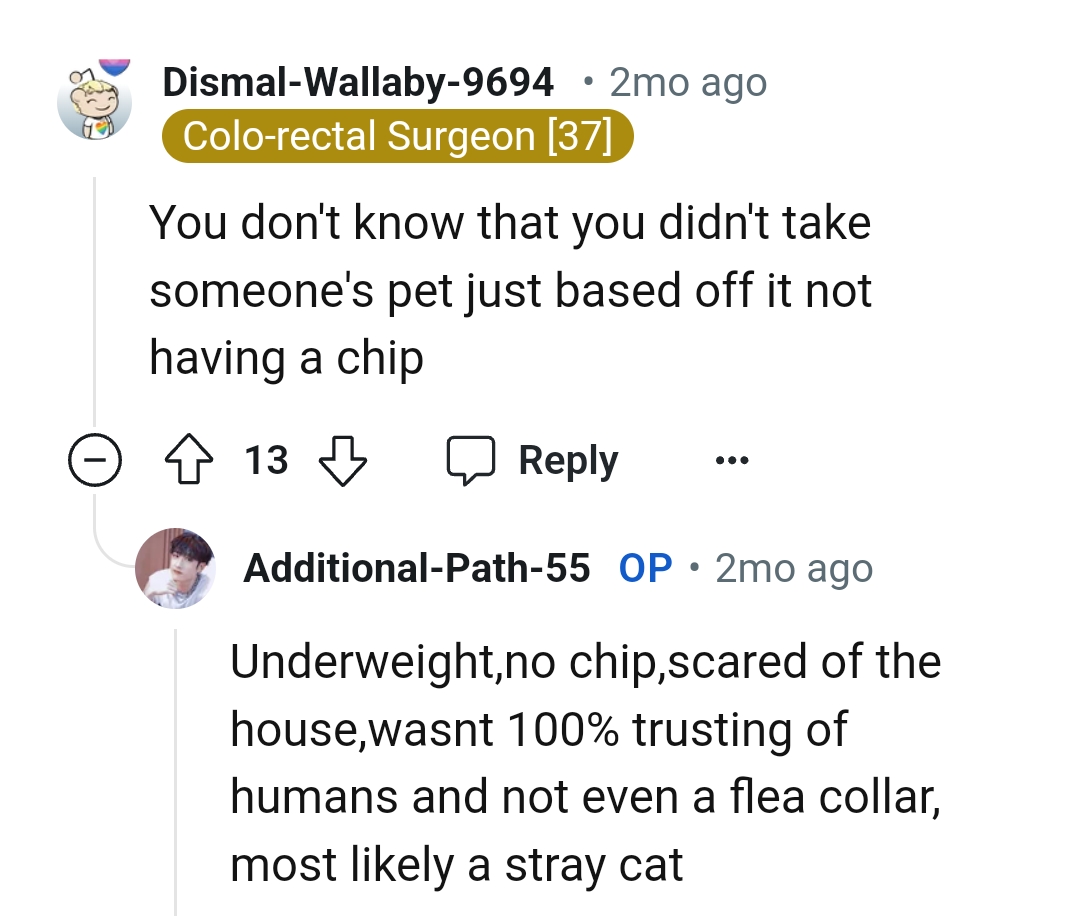
The OP left this edit to further clarify things
“my cat” = family cat, and my sister can't take the cat with her if she moves out, as she might potentially neglect the cat since we can't trust that she will take care of her now; so how can we trust she will on her own? “her cat” = locked in her room; we can't pet her, and she will get to take her if she moves out, something that with my own cat I was not allowed.
When she moves out
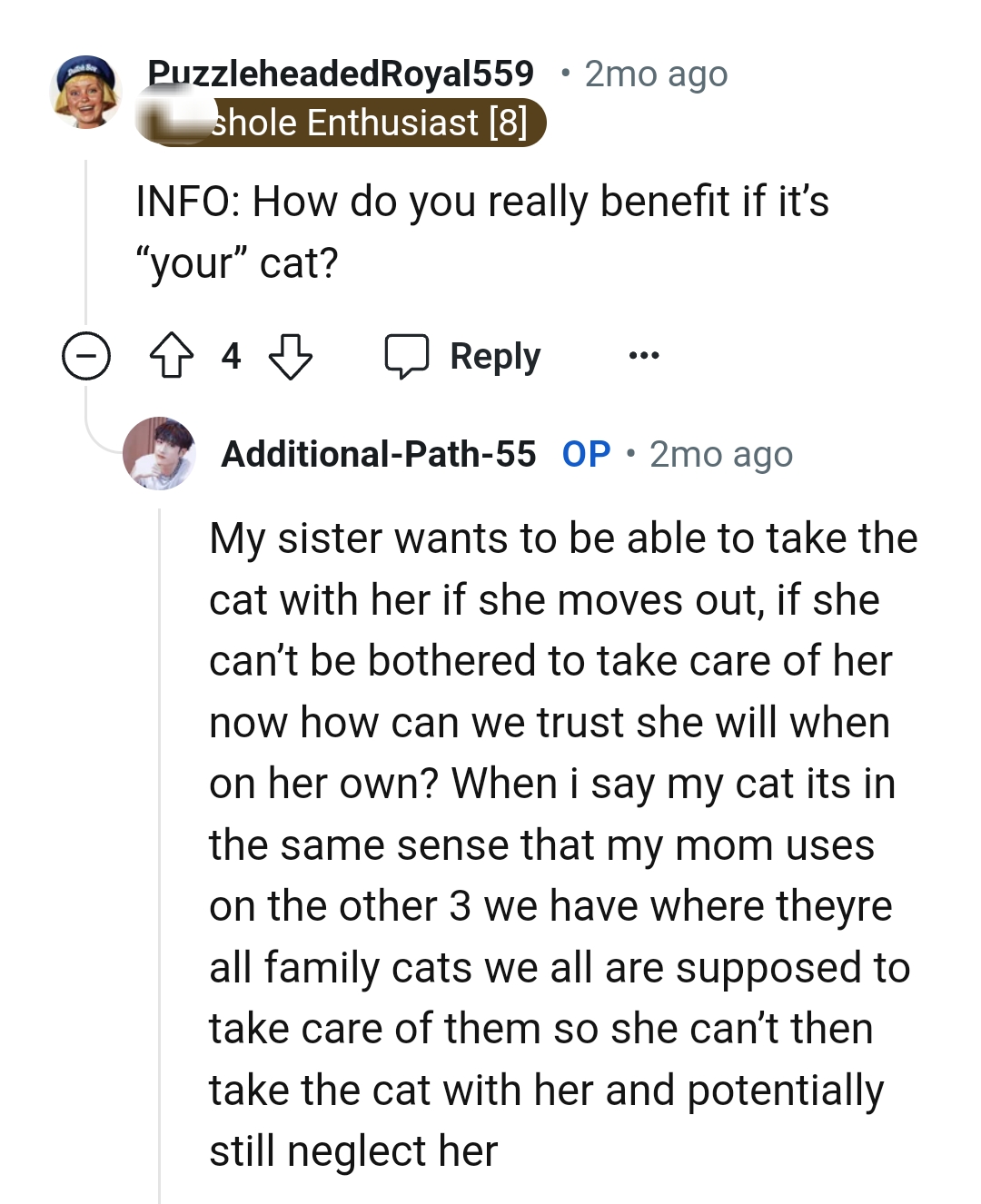
Cat related care

Practical Steps for Resolving Conflict
Experts recommend discussing ownership openly and collaboratively to prevent misunderstandings.
Setting clear guidelines about responsibilities and ownership can help each sibling feel valued and respected.
Using negotiation techniques, such as brainstorming solutions together, can foster cooperation and reduce feelings of competition, ultimately strengthening the sibling bond.
Psychological Analysis
This situation highlights how sibling dynamics can become fraught with competition and misunderstanding, particularly when roles and responsibilities are not clearly defined.
Encouraging open dialogue about these issues can help alleviate tensions and foster a more cooperative relationship.
Analysis generated by AI
Analysis & Alternative Approaches
Addressing ownership conflicts requires a blend of understanding and proactive communication.
As emphasized in Psychology Today: 'Healthy relationships thrive on clarity, respect, and mutual understanding.'
This dispute has left a foul taste, but one thing is certain: someone must take responsibility for the new cat's care. If OP's sister is unable to step up, OP is prepared to fill the role.
It's not about taking possession, but about showing the cat the love and attention she deserves. OP's sister may believe she wants the cat, but her behaviors demonstrate otherwise.
OP, on the other hand, is eager to put in the effort, but overall, the story received an "everyone sucks" verdict.
Additionally, emotional intelligence plays a critical role in resolving such conflicts.
According to research, developing skills in empathy and self-regulation can enhance communication and understanding between siblings.
Practicing active listening and validating each other’s feelings can create a more supportive environment, allowing both parties to express themselves without fear of judgment.



